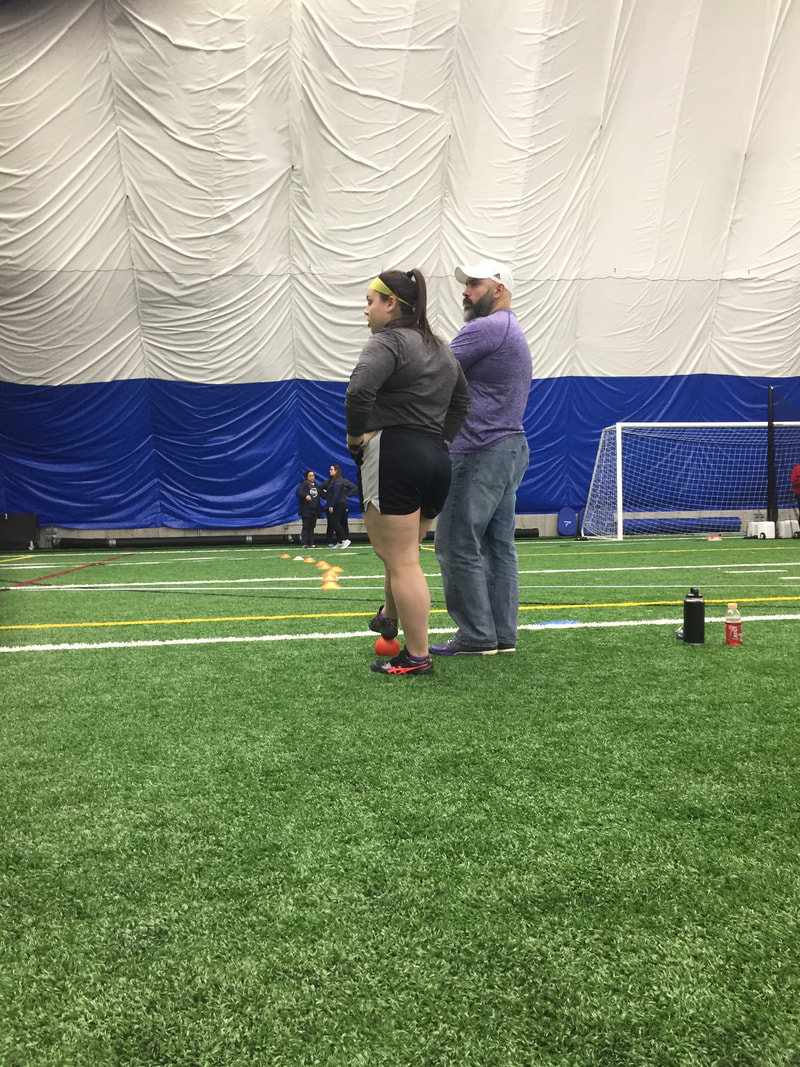|
With the close of the indoor season that occurred this past weekend for most of my throwers, I thought it would be a good time to reflect upon their impressions of their first collegiate indoor seasons. As customary, over the past weekend I sent them all an email. In the email, I asked them to think about a couple of questions that we would discuss answers to at practice this week. The questions were:
I’m sure some of you are probably thinking, “This coach. Why does he spend so much time on this nonsense? How does this help his throwers throw farther?” Some might be thinking that this is an important step for the athletes to take as they continue on with their throwing journeys. I am particular to the latter. I am because at the time I was a collegiate athlete, I was never asked anything of the sort. I never felt as though my opinion or thoughts mattered. I was just there to fill a jersey and throw. That is painful for me to write, but in my heart of hearts I believe it is true. For the most part, I had a wonderful collegiate experience. Academically, Fredonia prepared me for the position I am in today. I was given an opportunity to coach. I will forever be grateful for the chance to coach in 2004-05. Without that break, I wouldn’t be the person I am today. I think it’s important to have that specific type of conversation with your athletes. I think it’s important for them to be a part of the process. It offers them a sense of autonomy and some control over the path that they want to take. It also offers them ownership in the process. It assists in developing trust and respect between the coach and athlete. When athletes are part of the process, they are more apt to buy into the process as a whole mechanism, be able to view the bigger picture, and understand that the path and journey (process) are more important than the outcome. On Monday and Tuesday I had this conversation with my throwers. I spoke to two of them on Monday. I spoke to two more yesterday (Tuesday). I will be speaking to the fifth thrower tomorrow (Thursday). We discussed goals they have for the upcoming outdoor season, their expectations for the remaining couple months of the semester, and which events they would like to prioritize during the course of the outdoor season. Most of my throwers are main event discus throwers. Two of them competed at their respective state championships last season (one in the discus and one in the shot). One will be a main event hammer thrower. I’m not quite sure about the other two yet. One thinks she wants to be a main event hammer thrower, with the discus coming in a close second. The fifth thrower wants to try all four events and, “Let’s see what happens.” I don’t like that very much, but we will see what happens. The importance of figuring out main events or top two events is twofold. First, where do the athletes and I think they have the best chance of performing well. Second, we have a time and daylight issue until the middle of April. Due to their extremely time consuming and hectic course loads, we need to end practice a little earlier than I have in other seasons because they have labs either at 4pm, 5pm, or 6pm. This varies based on the day, and not to mention the classes they have that finish at 3:50pm and 4:50pm. Things get a little tight, so by establishing main events and second events, we can have more structured practice days and weeks that should provide each of them with the individualized time they are due in order to reach their goals. It is confusing at times, even for me, but that is why we write everything down and keep track of the number of throws per event to ensure they are dedicating the right amount of time to the right event. As coaches, how do you engage your athletes in conversations like this? Do you feel it’s important to discuss expectations and goals with your athletes? If so, what does your process look like? I’m always interested in learning more about how high-school, collegiate, and post-collegiate throwers discuss the goal-setting and expectation process with their athletes. I’ve been having these types of conversations with my athletes since I first started coaching in 2004. I hope you consider taking the time to share your experiences with this process. Rather than write, it may make for a better podcast. Let me know if you are interested, I’d love to have a discussion about this topic or any other you’d like to talk about. As always, thanks for reading ~ Charles
1 Comment
3/21/2019 07:27:16 am
Personally, I based there success of a certain season if it has been talked about in social media. But most importantly, it is about being sports and camaraderie. All teams should be happy with the result, and every player must be open with whatever the result may be. I always believe that sports is about building yourself and other people surrounding you. I am sure you were able to get the gist. Hopefully, young aesthetes will learn this craft.
Reply
Leave a Reply. |
Dr. Charles InfurnaCharles Infurna, Ed.D., is the owner and lead coach of Forza Athletics Track Club. Dr. Infurna has coached National Record Holders, National Champions, All-Americans, and Conference Champions at the Post-Collegiate, Collegiate, and High School level. Archives
January 2023
Categories |


 RSS Feed
RSS Feed